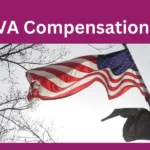Airline ticket prices can be unpredictable, right? One day, they’re sky-high; the next, you spot a deal you’d think was a typo. Enter skiplagging, a sneaky way to save on flights, and it’s changing how some savvy travelers approach air travel. But is it worth it, and is it even legal? Let’s break down skiplagging, why people are doing it, and whether it could work for you.
What is Skiplagging? A Simple Definition
Skiplagging, also known as “hidden city ticketing,” is when a passenger books a flight with a layover in their actual destination city and skips the final leg of the journey. Essentially, you’re booking a flight that goes beyond where you want to go — but you get off at the connecting city instead.
Why Do People Skiplag? The Appeal of Hidden City Ticketing
So, why would anyone book a flight with an extra leg they don’t even plan to take? Skiplagging can save travelers a surprising amount of money. This tactic works because, sometimes, direct flights are priced higher than flights with layovers. Crazy, right? By using skiplagging, travelers exploit this oddity in pricing.
How Does Skiplagging Work in Practice?
Imagine you want to fly from New York City to Chicago. A direct flight might cost $300, but a flight from New York City to Denver, with a layover in Chicago, might only cost $200. With skiplagging, you would book the New York to Denver flight but exit in Chicago, skipping the last leg.
The Good and Bad: Pros and Cons of Skiplagging
Pros: Why Skiplagging is Tempting for Travelers
- Big Savings: The biggest draw of skiplagging is the money you save.
- Flexible Routes: Skiplagging gives you more flight options, potentially landing you a better schedule.
- More Freedom: It allows you to avoid paying inflated direct flight prices.
Cons: The Downsides and Risks of Skiplagging
- Airline Policies: Many airlines forbid skiplagging, and if they catch you, there may be repercussions.
- One-Way Only: Skiplagging doesn’t work for round trips unless you buy two one-way tickets.
- Checked Bags: You can’t check luggage on a skiplagged flight since it would be sent to the final destination.
Is Skiplagging Illegal?
Skiplagging isn’t illegal, but airlines are not fans. Airlines have strict rules in place that can penalize skiplaggers, but they rarely escalate to legal action. The airline might void your frequent flyer miles or ban you from future flights with that airline.
How to Skiplag Without Getting Caught
Use a Separate Account
If you’re part of a frequent flyer program, avoid using it for skiplagged flights to protect your points and account.
Avoid Checked Bags
Since you won’t be following through to the final destination, checking a bag is a no-go. Stick to carry-on luggage only.
Don’t Overuse Skiplagging
A few skiplagged flights might slip under the radar, but frequent use could lead to trouble with the airline.
Hidden City Ticketing and Airline Revenue: Why Do They Care?
Airlines set prices based on demand, competition, and distance, but not always in the most logical ways. This pricing system means that sometimes shorter, direct routes are priced higher than longer routes with a layover. Skiplagging disrupts this model by bypassing the airline’s intended pricing strategy.
How Do Airlines Combat Skiplagging?
Many airlines monitor for signs of skiplagging. If they notice a pattern of missed flights or multiple hidden city bookings, they may take action, like:
- Voiding Tickets: Canceling any unused segments or future tickets.
- Account Termination: Closing frequent flyer accounts linked to skiplagging activity.
- Legal Threats: While rare, some airlines have threatened legal action, though it’s uncommon.
When Skiplagging Makes Sense (and When It Doesn’t)
Ideal for One-Way Flights
If you’re on a one-way trip and willing to travel light, skiplagging can be an excellent way to save.
Not Great for Round Trips
Since airlines may cancel return flights if they detect skiplagging, it’s best avoided for round trips.
For Those Without Frequent Flyer Accounts
If you’re not tied to a frequent flyer account, skiplagging might be a lower-risk option.
Skiplagging Etiquette: Staying Respectful of the Rules
Don’t Brag About It
Posting on social media or openly talking about skiplagging can attract the wrong kind of attention. Keep your travel tactics to yourself.
Be Courteous to Airline Staff
Skiplagging doesn’t break any laws, but it’s still bending the rules. Treat staff with respect, and remember that they’re just doing their job.
Alternatives to Skiplagging: Other Ways to Save on Flights
Flexible Dates and Destinations
If you have some flexibility, search for flights on different dates or to nearby airports. Often, this can yield cheaper flights without needing to skiplag.
Use Flight Comparison Sites
Sites like Google Flights, Skyscanner, and Kayak can help you find the cheapest direct flights or layovers that might save you money.
Try Budget Airlines
Budget carriers often have direct routes at lower prices, so you may not need to go through the hassle of skiplagging.
Sign Up for Price Alerts
Set alerts for your intended destinations. Price tracking apps and sites notify you when fares drop, helping you snag deals without skiplagging.
The Controversy Around Skiplagging
Airlines’ Perspective: Lost Revenue
Airlines argue that skiplagging impacts their revenue and can drive up prices for all passengers. They view hidden city ticketing as a loophole that undercuts fair pricing.
Travelers’ Perspective: Unfair Pricing Models
On the flip side, passengers argue that airline pricing models can seem unfair, and skiplagging is a creative response to outsmart inflated prices.
Legal Precedents and the Skiplagging Debate
While airlines have tried to pursue legal action against skiplagging advocates, they’ve rarely succeeded. For now, the debate rages on, with airlines cracking down and travelers continuing to look for loopholes.
Tools for Finding Skiplagging Flights
There are a few websites and apps that help travelers locate hidden city flights:
- Skiplagged: The most well-known tool, Skiplagged.com finds hidden city flights specifically for this purpose.
- Google Flights: While not skiplagging-focused, Google Flights sometimes shows options that include layovers in your destination city.
- Hopper: Known for predicting flight price trends, Hopper might help you find cheaper routes without skiplagging.
Ethical Considerations: Is Skiplagging Right for You?
Before diving into skiplagging, consider your personal values. Some view skiplagging as harmless, while others see it as deceptive. Make sure you’re comfortable with the risks and the moral gray area involved.
Conclusion: Is Skiplagging Worth Trying?
Skiplagging is a clever hack, but it’s not without its risks. While it can save you money, it requires careful planning and a bit of stealth to avoid consequences. If you’re on a one-way trip, traveling light, and don’t mind bending the rules, it might be worth a try. Just remember that airlines are constantly watching for this strategy, and they’re not afraid to fight back if they catch on. Ultimately, if saving money on airfare is your goal, there are other ways to achieve that without risking your account, frequent flyer miles, or future travel plans.
FAQs
1. Is skiplagging illegal?
Skiplagging isn’t technically illegal, but it is against most airline policies, which can lead to consequences if you’re caught.
2. Can I skiplag on a round trip?
No, it’s not recommended for round trips. Airlines may cancel the return leg if they detect skiplagging.
3. How can I avoid getting caught while skiplagging?
Use separate accounts, stick to one-way trips, and never check baggage. Also, avoid frequent use to reduce the risk.
4. Are there alternatives to skiplagging?
Yes! You can try flexible dates, price alerts, budget airlines, or even flying into nearby airports for cheaper fares.
5. Why do airlines charge more for direct flights?
Airline pricing is based on demand and sometimes distance, but it’s not always logical. Longer routes with layovers can end up being cheaper.










